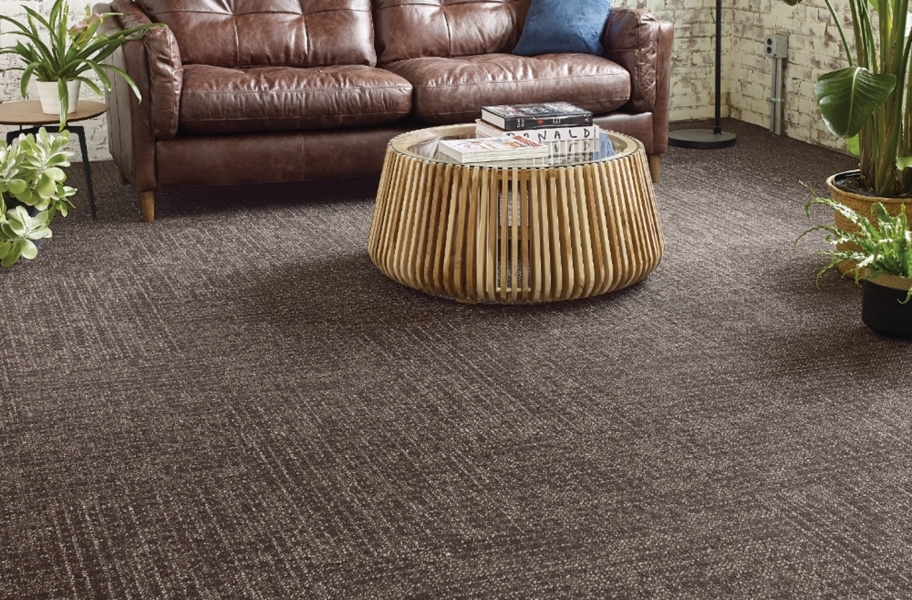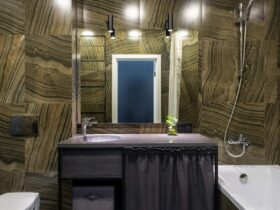Carpet tiles are small sections of carpeting that are laid as individual tiles. They are a versatile flooring option suitable for various spaces, offering easy installation and maintenance.
Carpet tiles are known for their durability and design flexibility, making them a popular choice for both commercial and residential settings. With a wide range of colors, patterns, and textures available, carpet tiles allow for creative and customizable flooring solutions.
Their ability to withstand heavy foot traffic and their ease of replacement make them a practical and cost-effective choice for many applications. Whether used in offices, schools, or homes, carpet tiles offer a convenient and stylish flooring solution.
Introduction To Carpet Tiles
Carpet tiles are versatile flooring options made of individual sections for easy installation and replacement. They come in various designs, colors, and sizes, offering a convenient and customizable solution for both residential and commercial spaces.
The Basics Of Carpet Tiles
Carpet tiles, also known as carpet squares, are a type of flooring made up of small modular carpet pieces that can be easily installed and replaced. Each tile is usually square-shaped and comes in a variety of sizes, colors, patterns, and materials.
Unlike traditional wall-to-wall carpeting, carpet tiles can be installed in any configuration, allowing for endless design possibilities. They can be arranged in a checkerboard pattern, a herringbone pattern, or even in a random mix-and-match style.
Why They’re Gaining Popularity
Carpet tiles have gained popularity in recent years due to their versatility, durability, and ease of installation. They are perfect for high-traffic areas such as offices, schools, and commercial spaces because they can withstand heavy use and can be replaced individually if they become damaged.
Carpet tiles are also popular among homeowners because they are easy to clean and maintain. If a tile becomes stained or damaged, it can be easily removed and replaced with a new one, eliminating the need to replace the entire carpet.
Another reason carpet tiles are gaining popularity is their eco-friendliness. Many carpet tiles are made from recycled materials and can be recycled again at the end of their lifespan, reducing waste and promoting sustainability.
In conclusion, carpet tiles are a versatile, durable, and eco-friendly flooring option that can add style and functionality to any space. Whether you’re looking to revamp your home or office, carpet tiles are definitely worth considering.
Historical Evolution Of Carpet Tiles
Carpet tiles have a rich historical evolution, dating back to ancient times. These innovative flooring solutions offer versatility and easy installation, making them a popular choice for modern interiors. The evolution of carpet tiles showcases a seamless blend of tradition and contemporary design trends.
From Traditional Carpets To Modular Tiles
Carpet tiles have come a long way from their humble beginnings as traditional carpets. The historical evolution of carpet tiles can be traced back to the early 20th century when they were first introduced as a practical and versatile flooring solution.
Innovations In Design And Material
Over the years, carpet tiles have undergone significant innovations in both design and material. These advancements have transformed carpet tiles into a popular choice for various commercial and residential spaces.
- Design: Carpet tiles now offer a wide range of designs, patterns, and colors, allowing for endless creative possibilities. Whether you prefer a classic look or a more contemporary style, there is a carpet tile design to suit every taste.
- Material: Modern carpet tiles are crafted using high-quality materials that are durable, stain-resistant, and easy to maintain. From nylon to polyester, these materials provide enhanced performance and longevity.
Moreover, the modular nature of carpet tiles makes them highly adaptable to different spaces. They can be easily installed, replaced, and rearranged, making them a cost-effective flooring solution.
The historical evolution of carpet tiles has paved the way for their widespread use in various settings. From traditional carpets to modular tiles, advancements in design and material have made carpet tiles a versatile and practical flooring choice.
Benefits Of Choosing Carpet Tiles
When it comes to flooring options, carpet tiles offer a range of benefits that make them a popular choice among homeowners and businesses alike. From ease of installation to versatility in design, carpet tiles provide a practical and stylish solution for any space. Let’s explore the key advantages of choosing carpet tiles:
Ease Of Installation
Installing carpet tiles is a straightforward process that can be easily accomplished by both professionals and DIY enthusiasts. Unlike traditional wall-to-wall carpeting, which requires stretching and seaming, carpet tiles are designed to be laid directly on the floor surface. With their self-adhesive backing or interlocking system, these tiles can be quickly and effortlessly placed without the need for specialized tools or extensive preparation.
Versatility In Design
Carpet tiles offer a wide range of design options, allowing you to create a customized look that suits your unique style and preferences. From bold patterns to subtle textures, the variety of colors and designs available ensures that you can find the perfect match for your space. Moreover, carpet tiles can be easily mixed and matched, allowing you to create visually appealing patterns or designate specific areas within a room. This versatility in design makes carpet tiles a popular choice for both residential and commercial settings.
Durability And Maintenance
One of the key advantages of carpet tiles is their exceptional durability. Made from high-quality materials, these tiles are built to withstand heavy foot traffic and resist wear and tear over time. In addition, if a tile becomes damaged or stained, it can be easily replaced without the need to replace the entire carpet. This not only saves time and money but also ensures that your flooring remains in pristine condition. Furthermore, carpet tiles are relatively low maintenance, requiring regular vacuuming and occasional spot cleaning to keep them looking their best.

Credit: www.flooringinc.com
Types And Styles Of Carpet Tiles
Carpet tiles offer versatility with various types and styles to suit any space. From plush to patterned designs, carpet tiles provide a customizable flooring solution for homes and offices. Easy to install and replace, they are a practical and stylish choice for modern interiors.
Carpet tiles are a versatile flooring option that offers a wide range of types and styles, making them suitable for various spaces and design preferences. From material varieties to patterns and colors, as well as shapes and sizes, carpet tiles provide an array of options to suit different needs.
Material Varieties
Carpet tiles are available in various material options, each offering unique benefits. The most common materials for carpet tiles include nylon, polypropylene, and polyester. Each material has its own strengths, such as durability, stain resistance, and ease of maintenance.
Patterns And Colors
When it comes to patterns and colors, carpet tiles offer a wide selection to match any aesthetic. From solid colors to geometric patterns and textured designs, there are options to suit modern, traditional, and eclectic styles. Bold and vibrant colors can add a pop of personality to a space, while neutral tones offer versatility and timelessness.
Shapes And Sizes
Carpet tiles are available in various shapes and sizes, allowing for customizable installations. Common shapes include square, rectangle, and plank, while sizes can range from small 18×18-inch tiles to larger 24×24-inch tiles. This variety enables flexibility in creating unique patterns and designs within a space.
In addition to the material, patterns, colors, shapes, and sizes, carpet tiles also offer benefits such as easy maintenance, cost-effectiveness, and the ability to replace individual tiles if damaged. With such a diverse range of options, carpet tiles continue to be a popular choice for both residential and commercial settings.
Installation Process Of Carpet Tiles
Carpet tiles are a versatile and practical flooring solution that offers easy installation, maintenance, and replacement. The installation process of carpet tiles can be broken down into three main steps: preparing the subfloor, laying the tiles, and adding finishing touches.
Preparing The Subfloor
Before laying carpet tiles, it is crucial to ensure that the subfloor is clean, dry, and level. Any imperfections in the subfloor should be repaired to create a smooth and even surface. Additionally, a moisture barrier may be necessary to prevent any moisture-related issues in the future.
Laying The Tiles
When laying carpet tiles, it is important to start from the center of the room and work outward. This helps to ensure a balanced and symmetrical layout. The tiles should be placed tightly together, and adhesive or double-sided tape can be used to secure them to the subfloor. It is essential to follow the manufacturer’s guidelines for the specific adhesive and installation method.
Finishing Touches
Once all the carpet tiles are in place, the finishing touches can be added. This may include trimming the tiles to fit around the edges of the room and installing transition strips or trim pieces to create a polished look. It’s also important to roll the installed tiles with a heavy roller to ensure proper adhesion to the subfloor.
Sustainability And Environmental Impact
Carpet tiles offer a sustainable flooring solution, reducing environmental impact through their eco-friendly production process and recyclable materials. Their versatile design allows for easy installation and replacement, promoting sustainability in both residential and commercial spaces.
Recyclable Materials And Eco-friendly Options
Carpet tiles are a sustainable flooring solution that offers numerous benefits, including their recyclable materials and eco-friendly options. These features make them an excellent choice for those looking to reduce their environmental impact.
When it comes to recyclable materials, carpet tiles are often made from recycled materials such as plastic bottles, nylon, or other synthetic fibers. These materials are transformed into durable and high-quality tiles through an innovative recycling process. By utilizing recycled materials, carpet tile manufacturers not only reduce waste but also decrease the demand for new resources. This helps to conserve energy and lower carbon emissions, making carpet tiles a more sustainable choice compared to traditional carpeting options.
Additionally, carpet tiles offer eco-friendly options that further enhance their sustainability. Some manufacturers produce carpet tiles that are certified by environmentally friendly programs such as LEED (Leadership in Energy and Environmental Design) or have obtained other recognized certifications. These certifications ensure that the carpet tiles meet specific sustainability standards, including factors like reduced greenhouse gas emissions, low VOC (Volatile Organic Compounds) emissions, and adherence to strict waste management practices.
By opting for carpet tiles with these certifications, you can be confident that your flooring choice aligns with environmentally friendly practices. Moreover, these eco-friendly options often prioritize the use of renewable energy sources during the manufacturing process, further reducing their overall carbon footprint.
Impact On Indoor Air Quality
In addition to their sustainable materials and eco-friendly options, carpet tiles have a positive impact on indoor air quality. Poor indoor air quality can lead to various health issues, including allergies and respiratory problems. Fortunately, carpet tiles can help improve indoor air quality by trapping dust, allergens, and other pollutants within their fibers.
The design of carpet tiles allows for easy removal and cleaning of individual tiles, preventing the accumulation of dust and allergens. Regular vacuuming and maintenance help to keep the air clean and free from harmful particles. Moreover, carpet tiles are often treated with stain-resistant coatings that minimize the need for harsh cleaning chemicals, further reducing the release of harmful compounds into the air.
By choosing carpet tiles, you can create a healthier indoor environment for you and your family. Their ability to trap and prevent the circulation of airborne pollutants contributes to better air quality, reducing the risk of respiratory issues and allergies.
In conclusion, carpet tiles offer sustainable and environmentally friendly flooring options that prioritize recyclable materials and eco-friendly manufacturing practices. Their positive impact on indoor air quality further enhances their appeal. By considering carpet tiles for your flooring needs, you can make a conscious choice to reduce your environmental footprint while enjoying a healthier indoor environment.
Frequently Asked Questions
What Are Carpet Tiles?
Carpet tiles are small pieces of carpet that are designed to be installed in a modular pattern, rather than a wall-to-wall installation.
How Are Carpet Tiles Installed?
Carpet tiles are installed by first preparing the subfloor, then laying out the tiles in the desired pattern, cutting them to fit as needed, and adhering them to the subfloor.
What Are The Benefits Of Carpet Tiles?
Carpet tiles offer several benefits, including easy installation, durability, versatility in design, and easy replacement of damaged tiles.
Can Carpet Tiles Be Used In High-traffic Areas?
Yes, carpet tiles can be used in high-traffic areas as they are known for their durability and easy replacement of damaged tiles.
How Do You Maintain Carpet Tiles?
Carpet tiles can be maintained by vacuuming regularly, spot cleaning spills immediately, and using a carpet cleaning machine periodically.
Are Carpet Tiles A Cost-effective Option?
Yes, carpet tiles are often a cost-effective option as they can be more affordable than traditional wall-to-wall carpeting and their modular design can reduce installation costs.
Conclusion
Carpet tiles offer versatility and easy installation for various spaces. Their durability and design options make them a popular choice for both residential and commercial settings. Consider the benefits of carpet tiles when looking for a practical and stylish flooring solution.









Leave a Reply